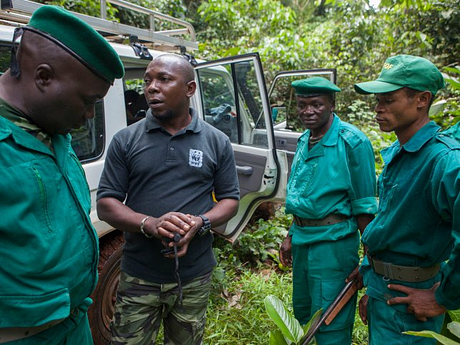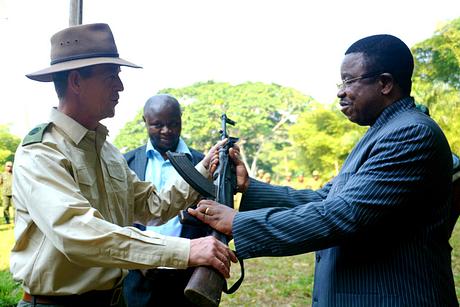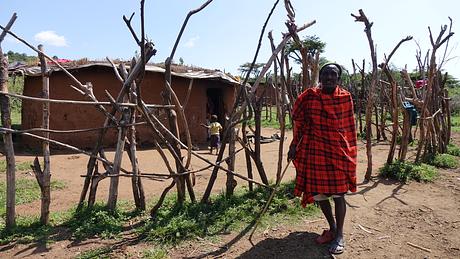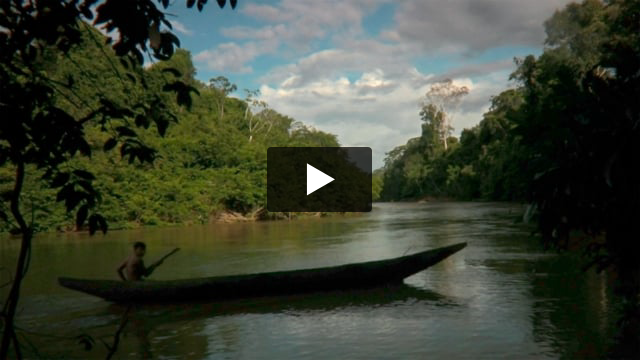WWF releases report on its human rights abuses
November 24, 2020
 © WWF
© WWFThis page was last updated in 2020 and may contain language which is now outdated.
Today, WWF has released a report it commissioned on human rights abuses in areas where it operates in the Congo Basin, India and Nepal. The review “did not seek to determine… whether the alleged abuses… occurred.”
Its key finding was that in many cases “WWF knew about the alleged abuses by rangers… but… continued to support and collaborate with them, and… failed to take effective steps to prevent, respond to and remedy the alleged abuses.” The report echoes previous WWF responses in passing blame for the abuses onto “government rangers,” funded and trained by WWF.
The report clearly shows that the senior management of WWF International, which was responsible for the direct management of programs in Cameroon and the Democratic Republic of Congo, repeatedly failed, over the course of several years, to take corrective action. It also says WWF has continued to fund and support rangers who have committed abuses in the Congo Basin: “By 2008 at the latest, WWF Cameroon staff had heard allegations of beatings and physical violence by eco-guards in the national parks of south-eastern Cameroon. Nevertheless, WWF continued to fund, support and collaborate with ecoguards in a variety of ways."
The report also found that “the implementation of [WWF’s] social policies on the ground has been inconsistent, and in many respects ineffective during the period covered by this report.”
The report was commissioned in March 2019 following Buzzfeed reports which supported investigations previously made by the Rainforest Foundation (UK) and Survival International: WWF projects in the Congo Basin had taken the land of the local Baka, Bayaka and other (so called “Pygmy”) tribes without their consent, and its rangers had severely mistreated them under the guise of the fight against poaching.
Tribespeople were beaten, tortured, imprisoned and killed. Neither women, nor children nor the elderly, were spared.
WWF asked London law firm, Kingsley Napley – specialists in reputational protection – to carry out an investigation. This comprised a review of documents and decisions. The investigation was then “assessed” by a team of human rights consultants, including the former UN special rapporteur on human rights and the environment, John Knox.
The 160-page report was finally released today, two days before U.S. Thanksgiving Day.
 © Sinziana-Maria Demian / WWF
© Sinziana-Maria Demian / WWF
On 18 November, the UNDP responded to the abuses committed by WWF funded rangers in the North of Congo by also releasing its decision to end its support for its “Transboundary Biodiversity Conservation into the Basins of the Republic of Congo” project, and to do a “fundamental reset” of its work in the area. However, it will continue to support conservation there and intends to continue working with WWF, in spite of the acknowledged human rights violations.
Survival’s Director, Stephen Corry, said today, “Another of many internal reports on WWF human rights abuses confirms what we’ve said for decades. It’s come just before Thanksgiving in a clear attempt to bury the news. Conservation is now reframing its narrative to include support for Indigenous peoples’ rights, but we’ve heard all this before and little seems to change on the ground. Indigenous peoples’ lands must be properly recognised as their own. Their right to refuse outside intervention they don’t want must be upheld, including for so-called “green” projects. They are better at conservation than the conservation NGOs which mistreat and threaten them. If we are genuine about protecting biodiversity, it’s time to let them get on with it.”




